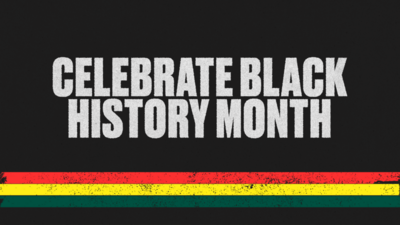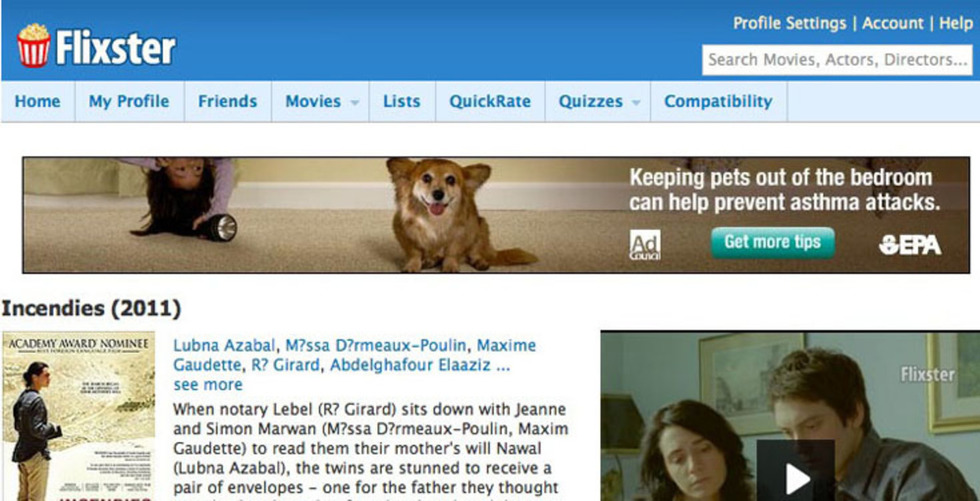
BY NICK DEMARTINO |
Can Data Save the Studios in the Age of Social Media?
What do social media analytics mean for the future of consumer interaction with film?

Warner’s acquisition of Flixster is Hollywood’s savviest move yet to survive a wrenching transition into the age of social media.
It’s not just that Flixster is the leading social movie site on the iOS, Android and Blackberry mobile platforms with 35 million downloads to date. Or that its sister site, review aggregator Rotten Tomatoes, attracts 12 million monthly visitors. Or that Flixster powers Facebook’s Movies app, also the market leader.

No, this is about more than traffic and traction. It is about data. Data is the secret sauce of social media that will empower Hollywood to take control of its own business, rather than to cede it to the disruptors from Silicon Valley.
With this deal, Warner gains direct access to millions of movie fans, and to the data generated by their social interactions around movies – both essential ingredients to build a direct-to-consumer movie business owned and operated by Hollywood. All this, at less than the cost of a single comic-book movie!
Social media fosters a flood of consumer interaction and generates massive streams of data, enriching companies that collect the data, and penalizing those who don’t.
This is a very different model than Hollywood (or anyone else) has ever known. It’s worth billions, because data can be tracked, measured, mined, parsed and monetized in countless inventive ways. All of which are counter to Hollywood’s old model.
To wit: studios have been wholesalers who sell to retailers, not end-users, e.g., individual humans. Hollywood’s biggest customers have been theater chains, TV and cable networks, and big-box stores –– and now digital distributors like Netflix, iTunes, and Amazon. All of which have been very busy building a consumer ecosystem powered by data.
To reach customers directly, studios will have to build new businesses to distribute movies and leverage behavioral data. Which means Hollywood must compete with the best-in-class e-retailers like Amazon and Apple. Are they up to this daunting task? Studios have tried before, and failed. (WB’s Entertaindom and NewsCorp’s MySpace debacle come to mind.)
To succeed studios must compete with old brick-and-mortar customers and new digital customers. Jousts with Apple, fights with theatre owners, tiffs with Netflix. These are but a few of the business challenges facing the studios during this time of change. There will be more.
Studios must also cooperate in order to meet customer expectations in the retail marketplace. But fierce competition between the studios has doomed many joint efforts in the past, not to mention the cold hand of anti-trust regulation. Can current cooperative initiatives such as MovieLabs, Hulu, and Ultraviolet break the jinx?
Every weekend the studios reinvent the wheel. They do this expensively, with few economies of scale. Social media builds affinities over time, as user behavior weaves a tapestry of future interests. Studios must learn how to cultivate an ongoing conversation with individual fans, and not only with sequels and “franchise movies.”
Why It Took So Long

Historically, each new wave of disruptive technology triggers a fairly predictable plot in Hollywood: Denial. Resistance. Acceptance. Embrace. Survival.
And so, while companies like Google, Apple, Amazon, Netflix and Facebook built online ecosystems for movie fans – virtual empires of data – the studios acted out what Scott Kirsner has called “Hollywood's epic battle between innovation and the status quo.”
“Studios cannot disrupt their own business models,” says Gordon Paddison, CEO of marketing firm Stradella Road and a former bigwig at New Line Cinema during the LORD OF THE RINGS era. “Somebody else will do the disruption. If we're smart, we learn from it.” His research has documented changes in movie going habits as a result of social media.
By now, studios aggressively market most releases with at least a website, a Facebook Page, and an online trailer via Apple and YouTube. They build ad campaigns on the web and mobile platforms. They experiment with coupons (e.g., Lincoln Lawyer), group ticketing (Toy Story 3), and direct streaming on Facebook (Dark Knight). They harness Twitter to jump start buzz generated by fans. They build mobile apps, games and ARGs, or web-video to excite movie fans.
“Social media has changed everything we are doing very dramatically,” said Doug Neil, SVP for Digital Marketing at Universal Pictures. “We have a one-on-one connection with members of the audience. Social media is a great way to activate word-of-mouth and pass-along buzz for our films.”
Indeed, no less an authority than Mashable, the blog that covers all things social, declared “the movie industry has embraced social media. Big time!” citing Toy Story 3, Inception, and Paranormal Activity. Big social-media initiatives for the Oscars and Golden Globes in 2011 suggest that social media has arrived.
Hollywood’s newfound embrace of social media notwithstanding, the shift to a direct customer and data-focused business presents a huge challenge.
“Social media for the studios is still very much campaign-focused, and it's very predictable,” said Nick Mendoza, Director of Digital Communications at Zeno Group, a PR agency. ”Emphasis is on the opening weekend…Then there's a break until the home video window, when you see an upsurge to promote BluRay and DVD sales…studios treat social platforms as impression-based.”
"Movie studios are optimizing around revenue today (box office), but not yet optimizing around the revenue and asset of tomorrow. That asset is data," wrote former SVP for Cisco's Media Solutions Group Dan Scheinman in a blog post before the Flixster deal (and before Cisco shut down his group).
Scheinman told me that “studios must use data to create an audience for more content—not just tickets this weekend, but all kinds of products. They need to cultivate direct relationships with customers, and bring those customers back to their own sites."
"When it comes to social media, studios don't stand out. They aren’t as aggressive as startups," said David Wertheimer, head of the Entertainment Technology Center at the University of Southern California and a former Paramount exec, noting that "studios have been more aggressive on the technological front when it adds value to their existing product, for instance production technologies."
"It is very rare for any company with a successful model in the present to dump it for a bigger success in the future,” says Blair Westlake, corporate VP of Microsoft’s Media & Entertainment Group, and a former executive at Universal. "The studio dilemma is this,” says Westlake. "Do they get enough value in the future to give up what they have now?"
In other words, have they reached the tipping point when the status quo presents a bigger risk than betting on an uncertain future in a new business?
"This industry needs a game-changer," wrote showbiz journalist Sharon Waxman a few months back. "No major media company has figured out how to embrace this revolution. None has integrated that change into its core – or seen its core identity melded to the next."
Next moves
Is the Flixster deal that game-changer? Will other studios advance Hollywood’s data strategy? Food for thought:
Comcast owns Fandango (which in turn bought Movies.com from Disney). Sony owns Gracenote, which powers iTunes – how could studios leverage these assets?
- Should a studio buy a movie data firm like Baseline Studio Systems from the New York Times or IMDB from Amazon?
- Or how about a feisty start-up like Jinni, which has developed a personalized “genome” for movies, similar to Pandora for music? Or start-up RCDB, which is building a database of content from within movies?
- Or market leader Rovi, which rents its vast database to power both conventional and web movie services?
What do you think? What are your suggestions?
Can Data Save the Studios in the Age of Social Media? has been syndicated to the New Medici blog.
